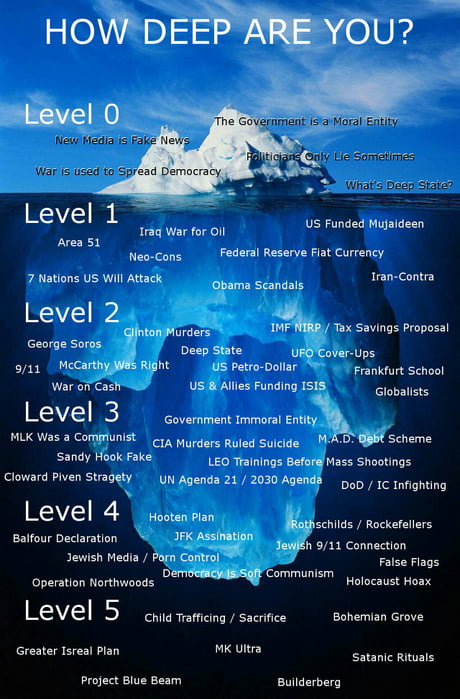

Still, wherever you have anonymous traffic on hidden networks, the criminal activity will follow. Tor estimates that only about 4 percent of traffic over its network is for hidden services (or dark web content) the rest is people accessing regular internet sites with greater anonymity. Tor says plenty of "normal people" use its service, as well as citizen journalists, whistleblowers, law enforcement agencies and, according to Human Rights Watch, Chinese dissidents.
#Deep web iceberg picture wuth leveks software#
It's important to remember that Tor isn't illegal software, just as torrenting software doesn't do anything illegal until you use it for sharing pirated movies. Think of it as a network of safe houses: You travel through underground tunnels that run along the lines of the streets above, and you pop out where you want using safe houses donated by fellow network users.īut with links on the dark web typically just alphanumeric strings of nonsense (think kwyjibo.onion) it can be very hard to know what you're getting. These relays are run by volunteers around the world who donate their server bandwidth. Using software originally known as The Onion Router (think layers and layers of encryption), Tor secures traffic by routing it through a network of secure relays that anonymize traffic.

When you log in to internet banking, you've navigated to a specific location online, but one that's not served up in Google results. But that doesn't mean it's suspicious - there are plenty of sites you visit in your day-to-day browsing that fall into this category. The deep web refers to any part of the internet that isn't discoverable by a search engine. The first thing to remember: The dark web is not the same as the "deep web." How does it work? How is it different from the "surface web" that we all know? And what do you need to know ahead of time, should you choose to wade in? The deep web So for those of us used to opening Chrome or Safari to get online, the dark web is an entirely different beast. Europol says the dark web and other peer-to-peer networks are still the "main platform" for sharing child abuse material. That's not to mention the things you really don't want to see. Just this week in Australia, a news investigation revealed that an anonymous dark web user has offered up access to the Medicare records of "any Australian" for just 0.0089 bitcoin ($22, AU$30, £18).


 0 kommentar(er)
0 kommentar(er)
